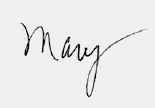Come in the middle? Here’re links to ➡️ Chapter One, Chapter 2, Chapter 3, Chapter 4, Chapter 5, Chapter 6, Chapter 7, Chapter 8, Chapter 9, Chapter 10, Chapter 11, Chapter 12
Broken Glass
When we got married, D. crushed the glass. Any glass may be used for the Jewish wedding—even a light bulb. Couples often choose a special glass to be broken and kept. Like the light bulb, that glass is wrapped in a cloth napkin (to avoid shattered glass shards). At the end of the ceremony, the groom stomps on the glass to great applause.
I am writing about the wreckage of a marriage. Restate: The wreckage of my marriage. My marriage. The paradox is clear: no marriage is owned by one of the partners.
How do I judge who was at fault?
I think of Japanese jurors. I’ve saved a New York Times article that appeared on the front page. Japan was attempting to move to jury trials, but the jurors in a mock trial were reluctant to express their opinions.
“They never engaged one another in discussion. Their opinions had to be extracted by the judges and were often hedged by the Japanese language’s rich ambiguity… Under the proposed system, randomly chosen citizens will sit on the bench next to judges, decide cases together and hand out sentences.”
Reasons given for the reluctance of jurors: respect for authority, submissiveness as part and parcel of the national character.
I thought fiction would give me my due. So I began to write a story about the bartender. Here is the fragment of the story:
The bartender said to the woman he was with, a buxom blonde, taller than he, while he fiddled with a book, a novel, Fitzgerald, she guessed from the Fitz that showed on the spine, though mostly she noticed how large his hand was on the binding of the book, “Nothing is sexier than a woman in a man’s button-down, in my button-down. You oughta know that by now.” So, they were lovers.
She watched from her table in the Martin Luther King library where she sat with her legal brief, the one she didn’t know how to write, that damn environmental stuff she was always on the wrong side of at Dewey LeBeouf, her law firm around the corner from the library. She’d leave in the evening to escape the corporate banter, to try to figure out how the hell to defend Big Oil. When he looked her way, when his glance hung there for a bit, she smiled and was sure she’d never see him again.
But there he was behind the bar at Kincaids when she ordered the Kendall Jackson red Zinfandel and he said, “A ways from the library tonight, huh?”
“The library?” She wasn’t about to admit she’d noticed him. She was in enough trouble. Her lover of ten years had moved out of their condo last week and informed her they would need to sell it. She was about to be homeless. Oh, she knew she could find a place, but she felt like a baby left out on a doorstep. She felt childish, worse than childish: infantile. Abandoned. She wanted to say out loud to the bartender. I’m abandoned.
“Would you like to look at a menu?” The bartender resumed his professional stance, turned to get her the expensive glass of wine and she saw he walked with a distinct limp, a kind of wobble as if one side of his body were more heavily weighted than the other. She noticed he was short. He’d seemed so tall at the library when he spoke so firmly to the blonde with what she viewed as one of the most seductive lines she’d ever heard. Okay, maybe not. Maybe the truth was it was a sentence she wished Guy had said to her. Who goes out, anyway, with a guy named Guy? she asked herself as she sipped the red wine he now handed her and stood before her with a menu in his hand. Those hands again. She was in love with his hands.
“Parapraxes,” she said, “is what I need and I’ll take the menu.”
“So, you need to forget?”
“How would you know what I need?”
“Parapraxes. You said that. But what you really need are the fried clams.”
You should know here what she is not saying even to herself: Guy has not made love to her for five of their ten years together without great effort on her part that includes his rejection of her La Perla garter belt and bra that set her back a pretty penny and that ended making her feel less than pretty, and yes, believe it or not, she’s quite a dish and knows it.
Why did she stay? That is the question.
She would tell you that last night she dreamed she was in the courtroom without a script, that she opened her mouth and nothing came out in front of the judge, in front of the jury, in front of her colleagues, that she searched her mind for the quote she’d use and all she could come up with was Charlie Parker’s line, If you haven’t lived it, it won’t come out of your horn.
I wrote that and went outside. A black SUV with blackened windows moved off. Its rear window shattered onto the asphalt with no apparent cause except the startle of the engine. Tiny pieces of broken glass, each one a perfect triangle lay where I stood. The SUV stopped mid-street. No one got out. It moved ahead.
This is my subject: The broken glass, the wake.
As for parapraxes: Get this. D. lost his wedding ring a month before the galleys of my book came out, a month before he kissed my friend after a party. It was not merely a kiss; they were making out on the couch while I washed dishes in the kitchen. I stood behind the couch and watched. Then I went outside and waited.
If you want to know the truth about the bartender, read backwards: I wrote about him.
If you want to know the truth, look elsewhere or get you to a Japanese jury.
Coming next: Chapter 14 “Adultery” Table of Contents
Help me continue to post by going paid (I’ll send love), big discount that ends soon:
Love,







It's always hard to say 'the truth.' Maybe that's what the Japanese have already figured out. They've been thinking and feeling much longer than us.
The ever-intriguing experience for me of reading this memoir serialized in short installments is in attempting to grasp a sense of the whole, which I still don't begin to approach. I can't glance ahead to see what the landscape looks like, So far, it isn't narratively propelled, though we get narrative. I've commented before about its associative flow. I feel at sea in its ebb and flow, the wash of Mary's feelings and her associative memories and reference points, as she, seemingly at sea herself in trying to achieve her own understanding, invites us to follow along. There's no meta narrative from a place of understanding and resolution. That's the way it seems so far. Maybe it changes. I don't know. It's a provocatively uncertain way to read. I'm liking it! I think others should come along.